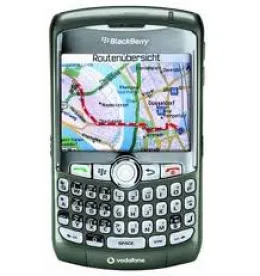In a precedential opinion, the United States Trademark Trial and Appeal Board (Board) sustained three opposition proceedings based on grounds of likelihood of confusion, and four opposition proceedings based on grounds of likelihood of dilution by blurring, in favor of Research in Motion Ltd. (RIM), the maker of BLACKBERRY-brand mobile devices. Research in Motion Ltd. v. Defining Presence Marketing Group, Inc. and Axel Ltd. Co., Case No. 91178668 (TTAB, Feb. 27, 2012) (Bucher, ATJ).
RIM filed opposition proceedings against four trademark applications for “CRACKBERRY” filed for use in connection with marketing services, computer and online services and clothing goods. RIM alleged that the applications for CRACKBERRY would cause a likelihood of confusion with its U.S. trademark registrations for BLACKBERRY covering smart phones and related goods and services, and would dilute its famous BLACKBERRY mark.
Concerning RIM’s likelihood of confusion claim, the Board rejected the applicant’s argument that its use of CRACKBERRY was a parody of BLACKBERRY as a reference to the addictive nature of RIM’s BLACKBERRY-brand handheld devices. The Board explained that the issue of trademark registrability is a much “narrower question” than that of free speech. Further, the Board noted that the defense of fair use of a trademark by parody is weaker when there is potential for confusion as to the source of goods or services with a known mark, especially when used on similar goods or services.
Reviewing the applicable DuPont factors to determine whether there was a likelihood that the relevant purchasing public would be misled to believe that the goods and services under the respective marks originated from a common source, the Board found the fame of the BLACKBERRY mark, the similarity of the parties’ marks and the overlap of trade channels to weigh in RIM’s favor. Further, the applied-for goods and services in three of the CRACKBERRY applications—namely marketing, computer and online services—were found similar to those covered by RIM’s registrations. The likelihood of confusion claim against the fourth CRACKBERRY application for clothing goods was dismissed due to the absence of a relationship between the parties’ goods.
Concerning RIM’s dilution claim, the Board determined that the BLACKBERRY mark had attained the high level of fame required for dilution purposes and had done so prior to applicant’s 2006 and 2007 filing dates for its CRACKBERRY applications. Thus, the Board found that all four CRACKBERRY applications would dilute RIM’s BLACKBERRY mark by blurring because of the already existing association of the terms by the public, as well as the applicant’s intent to create an association with the famous mark, which was supported by the applicant’s parody defense.
Responding to the applicant’s parody defense to the dilution claim, the Board explained that the parody defense is available to accommodate use of a famous mark in free speech and that claiming use of a term as a trademark for goods and services removes it from the fair-use provisions.
Distinguishing its holding from the U.S. Court of Appeals for Fourth Circuit’s decision in a parody case involving “CHEWY VUITTON” dog toys, the Board explained that applicant’s use of CRACKBERRY on goods and services similar to RIM’s “undercuts the effectiveness of the asserted parody.” Unlike the use of “CHEWY VUITTON” for a dog’s chew toy which was found to be an effective parody when compared to an elegant LOUIS VUITTON-brand handbag, use of CRACKBERRY to market similar goods and services was found to harm the distinctiveness of the BLACKBERRY mark.




 />i
/>i

